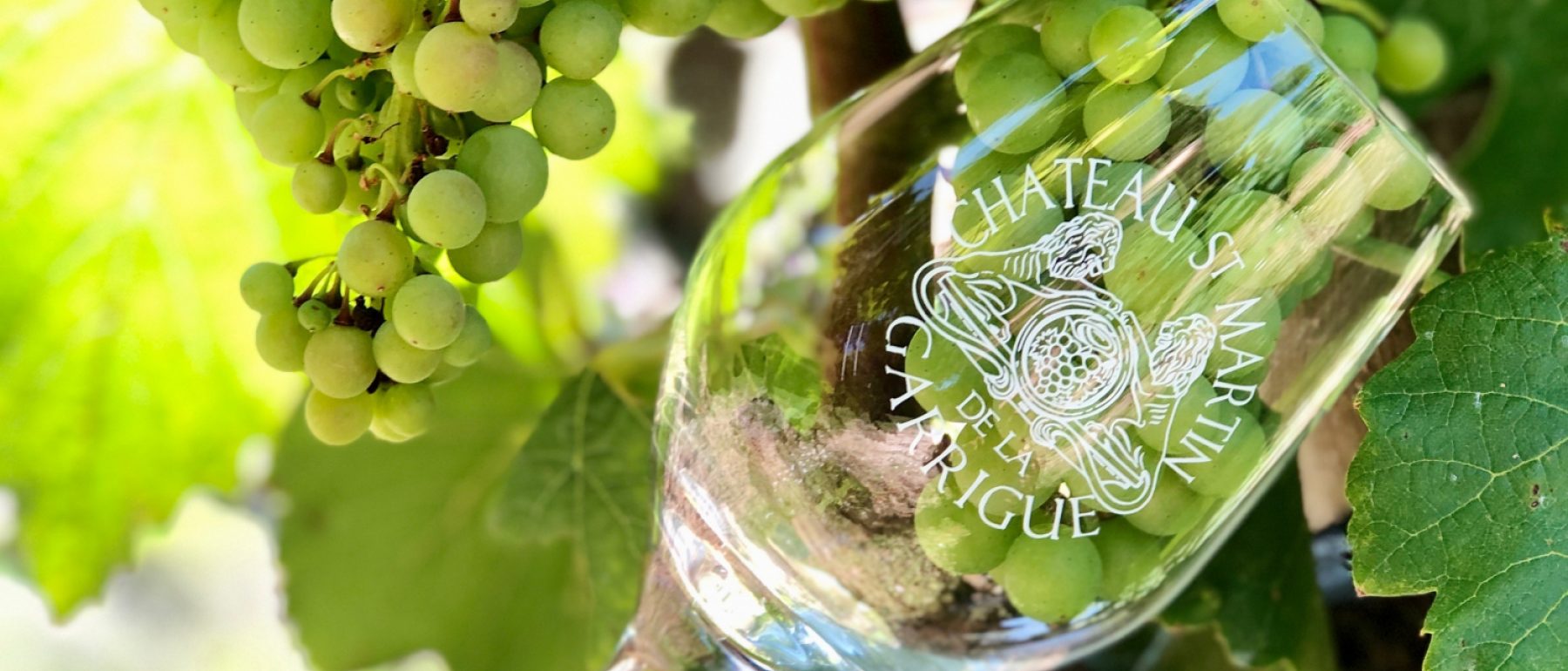
Entretien avec Gilles Habit
How long have you worked at Saint Martin?
My first vintage at Saint Martin was in 2001, after having worked for two years on another property (Domaine D’Ormesson), where I worked in collaboration with the Saint Martin team. I came back to Saint Martin in the winter of 2003.
What brought you to Saint- Martin?
I’d just moved to Montagnac in 2000 and after a last season of working as a chef, my objective was to start my reconversion. After 15 years spent working in hotels and restaurants, the world of wine seemed like a logical step in my career.
Your other experience in the world of wine and gastronomy (you were a chef before, weren’t you?)
My initial studies were at catering collage in Normandy as a chef, a training that I completed by studying hotel management in Paris. The idea at the time was to open at restaurant with my wife. I worked in lots of different places and we moved around a lot, from Brittany, to England, even passing through Réunion.
What led you to working in wine?
Having spent several years working in kitchens, often with no windows, where you start your day whilst it’s dark and you finish your day when it’s dark again, I needed a change of scenery.
I was attracted to the vineyard and winemaking without really knowing why, it was more of an instinctive choice than a deeply reflected decision.
Who trained you in winemaking and the vineyard?
My first teachers in viticulture and JC Zabalia, who was the director of Saint Martin at the time. However, I tend to self-teach for lots of things and viticulture was no exception. I learned a lot from reading, from practice and from making mistakes, experience comes with time.
How would you describe the evolution of the Domaine over the past 20 years?
There have been many ups and downs over the years, but we’ve always been moving forward. With a vast replanting program in place, I think that Saint Martin is about to turn a corner and reinvent itself.
You have stayed at Saint Martin despite the changes of owners. In your opinion, have these changes influenced the evolution of the wines?
I am very attached to Saint Martin, the Domaine doesn’t belong to me, but I do feel at home here. I spent many years working here with my brother and I still work with my brother in law, it’s a bit of a family affair.
As for the evolution of the wines, we remained classical for a long time, but these last few years, with the arrival of new markets and the evolution of customer taste, we have been forced to evolve, which is a good thing. I think that the arrival of a new owner brings a new lease of life and the current investments in the vineyard will shape the wines of tomorrow. There are going to be many changes, but we need to get it right.
What are the new objectives that you have fixed for yourself? What can we look forward to seeing in the St Martin de la Garrigue wines in the years to come? (new wines, blends, technology, etc…)?
We are evolving on the technical front, the choices for the grape varieties in the new vineyard will be crucial and they must take into account several factors; the evolution of consumer tastes and our markets, whilst being able to accommodate changes in climatic and regulations. Our wines of tomorrow will need to be able to conserve the identity of our ‘terroir”, but will also need be innovative.
We can observe a positive dynamic. New clients – USA, GB, Japan, China, Russia). The Saint Martin de la Garrigue wines regularly receive medals in prestigious wine competitions and raving reviews in the wine press. Of course, its thanks to you and your personality.
I think that, above all, our wines are the result of everybody’s work. Even if I influence the profile of the wines, I try to listen to others, and I remain convinced that 80% of the work of making good wine, is done in the vineyards.
Which wine do you take with you on your boat?
In accordance with our on-board cuisine, we consume the fruits of our fishing, mainly tuna, so it would have to be the Picpoul and our Bronzinelle Rosé, I can’t choose between the two. But our voyagers are also the ideal opportunity to discover local products, and the Mediterranean coasts are full of pleasant surprises.
And last but not least
CHÂTEAU-WINES » - IS IT A GUARANTEE FOR BEST QUALITY?
A Château-name is undouble charged with prestige and brings to mind beautiful castle buildings where the wine is produced. In summary, its only appellation wines made from a wine property's self-cultivated grapes, having been vinified on the estate itself, that can be called "Château". The Château denomination is rather to be considered as a quality guarantee that can be used only for wines which meet the three mentioned criteria’s..